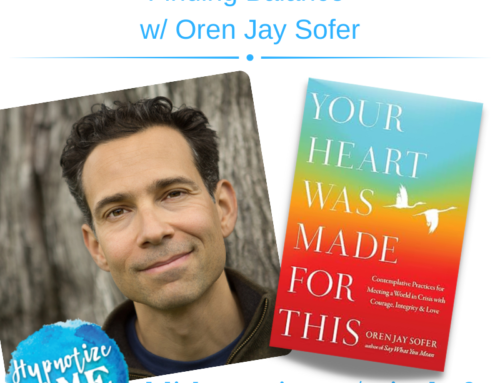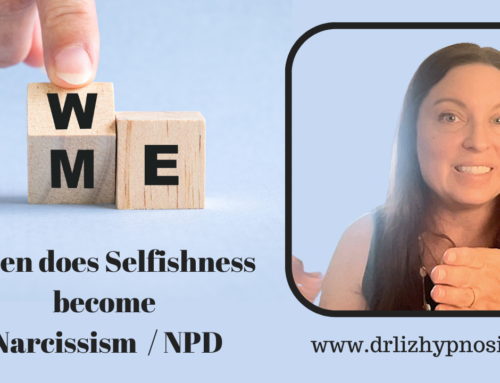This book is a go-to for decreasing Panic Attacks! If you find you can’t do it just with the book, find a therapist who is knowledgeable about panic attacks and anxiety to help you. The book is “Don’t Panic: Taking Control of Anxiety Attacks” by Reid Wilson. I talk about it in this video and how it helps you. If you prefer to read instead, the transcript of the video is below. Don’t forget to Join the Newsletter to download a free meditation to reduce fear and anxiety. You’ll love it! And it’s free!
Transcript
Hi, I’m Dr. Elizabeth Bonet with floridapsychotherapy.com. I’m glad you’re here today for “Conversations for Effective Living.” Today I’m going to talk about anxiety. I absolutely love treating anxiety in my practice. I love the clients, I love seeing them get better, I love doing the worksheets, I really enjoy all of that.
Occasionally I run across someone who will say, “Oh, you know, I went to therapy for my anxiety and it didn’t do anything.” I say, “Well, what did you do in therapy?” Because anxiety is very treatable and meaning you can get better with treatment. It’s not usually like, “Oh, you’re gonna have to go for years for anxiety treatment.” It’s not, you get better with the anxiety treatment.
I ask them, “What did you do?” They say, “Well, I just went in and talked.” To me that’s not going to help anxiety, just talking. Worksheets really help. There’s a really good book that I’m going to show you here called “Don’t Panic: Taking Control of Anxiety Attacks” by Reid Wilson, PhD.
This book it’s excellent, you can see how I have it all tagged up. It has awesome worksheets in it. It has a step-by-step process for you to follow and go through. If you’re having panic attacks or anxiety attacks, I would say go right now on Amazon and buy the book. Seriously, it is really good.
Work the book Alone or with a Therapist
You can work through it alone, but I think it’s often helpful if you have a therapist to work through it with you who can often see things that you can’t see. I definitely have clients who just have no idea about how to write a script for themselves to help them handle their anxiety.
So we go through that process together. We write the script. It’s effective. It helps them get better. We set up hierarchies. We talk about what are your motivations for treatment, like what’s going to motivate you here to really get better.
Just saying like, “Oh, I just don’t want panic attacks anymore. . . ” Yes, absolutely. Anyone who comes to the office doesn’t want panic attacks anymore. Just to say that isn’t really going to get rid of them. Let’s look at what’s really going to motivate you. Maybe you have kids and you don’t want your kids to be limited in what they do by your anxiety, like you can’t take them to the park because you get too anxious being at the park or being around people, or driving, or this and this and this.
Your Anxiety affects your Kids
As your kids get older you start to see how your anxiety affects them. They take it on and sometimes it limits them. Most parents don’t want that to happen. They want their children to have a better life than they do. They want to see them happier. They don’t want to pass on their anxiety to them. Sometimes that’s unavoidable. There is this genetic component to anxiety but it’s not an either/or. It’s really the wrong question to ask, “Is this genetics or is this something I can treat?” It’s both.
Is there a genetic component? Yes. Can you treat it with psychotherapy? Absolutely yes. It’s the combination of that. Do your kids learn some of your behaviors from how you act around anxiety? Absolutely. Do they have your genes in them? Absolutely they do. It’s like anything that you can learn from your own therapy is going to benefit your kids, hands down, it’s going to help them. If something comes with them you can be like, “Oh my gosh, I know what to do here.” We go through the steps and you can help them feel less anxious and more comfortable, and happier, and calmer in their own life, and that’s truly valuable.
This is just one motivation. People have all kinds of motivations but we break this down and say, “All right, you really need to look at those when the anxiety comes up.” You’re like, “Oh my God, what do I do here? I can’t do this, I can’t do what my therapist said to do!”
Go back to the motivations worksheet. Go back to those in your head or pull it out and actually look at it and together we say, “All right, this is why I need to face this. This is why I need to do this. This is why I need to get a handle on my anxiety because of this, this, this and this, and that’s how it’s going to benefit me in my life.”
Often the moment of a panic attack our thinking brain isn’t thinking that way; it’s not thinking at all. It’s just thinking fight or flight, that’s it. With anxiety it’s often flight. That’s why all of that stuff helps so that you can bring it out and look at it and get your thinking brain going again. We do all kinds of stuff like that and we do worksheets. I think it’s really fun. It’s really fun to treat anxiety, and in general the clients report good results from it.
That’s it for today about anxiety. I hope the book helps you if you’re out there struggling and either you can’t afford therapy or you want to try it on your own first, something like that. It’s a really effective book, I suggest you order it. Have a great day and I’ll see you next week.
 I specialize in hypnosis, anxiety and helping moms feel more stable in Broward county and the Fort Lauderdale area. If you would like some help with anxiety, panic attacks, or feeling better about yourself and your life, email me at drliz@floridapsychotherapy.com.
I specialize in hypnosis, anxiety and helping moms feel more stable in Broward county and the Fort Lauderdale area. If you would like some help with anxiety, panic attacks, or feeling better about yourself and your life, email me at drliz@floridapsychotherapy.com.
Yours in health,
Dr. Liz







